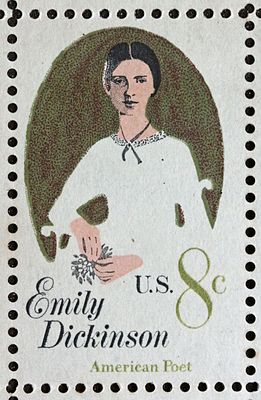Today, it’s a hop, skip, and jump from poetry, to my “granddaughter,” to my gratitude for all of you. So, let’s begin:
#1
On February 6, I posted about Sister Mary Lee who introduced the fifth-grade class, of which I was a part back in 1946-47, to poetry. She began with “story” poems, which I detailed in that posting.
Soon after we’d memorized the first of these story poems, she introduced us to a much shorter poem that lent itself to interpretation: “Stopping by the Woods on a Snowy Evening” by Robert Frost. After she’d handed each of us a copy of the poem, she invited us read it in unison.
Then she asked us what story the poem told. As we shared the story that had come to our minds, it became clear that the poem brought different stories to individual minds. That was a revelation to all of us.
Then she asked what the final stanza meant to each of us. There, too, we encountered differences among us. Another revelation.
For the rest of the year, she introduced us to poems that lent themselves to individual interpretation—like “I’m Nobody. Who Are You? By Emily Dickinson.
Sister Mary Lee was such a fine teacher; her enthusiasm and nonjudgmental acceptance of our responses to poems touches my life still. She has truly gifted my life.
#2
Elisa, the young woman who has become like a granddaughter to me and whom I introduced to you in posting back in November 2020, is doing well with her Stage 4 Melanoma cancer. She has been writing about it and now has a contract for a memoir that will be released in June of this year.
#3
Starting now, I’m making a commitment to myself to post every other Monday, at least for 2022. I’m announcing this because letting you all know that creates an imperative for me. And believe me, with my tendency toward “when-in-doubt-about-what-to-do—Read! Nap! Watch BritBox!” I need something to goad me on to getting in touch with all of you. Reaching out, as it were.
Because of not driving, I’ve truly become a recluse since October 2016. However, I’m extraordinarily fortunate in that I have friends living here and there—Minnesota, California, Boston, etc.—and I talk to two or three of them each week. So, I do stay connected with the human race via a voice on the phone.
These long-time friends share their happiness and sorrows, their woes and triumphs, their heartwishes and health with me; they keep me from the self-absorption that can come from living alone. Also, from the self-pity that can ferment in seclusion. In their graciousness, they are the mainland of my solitude.
As are all of you with whom I want to stay connected. Through the years of blogging, you have become treasured and cherished virtual friends. I am so grateful for all of you. When I visit your blogs, in which you share the ups and downs and realizations of your lives, I step out of my own remoteness and enter your daily routines, your philosophical realizations, the books you’re reading, the friends you cherish, the incidents that bring joy or confusion to you lives.
That is so wonderful, whether you be in the states of Washington, California, the Carolinas, New York or in Australia, New Zealand, Pakistan or anywhere else in this country or around the globe. All of you bring me the sustenance of life. Thank you.
Please know that you are in my thoughts and prayers and that we meet in the Holy Oneness of All Creation. That is, in the great river of grace that flows toward the depth-less ocean of Love.
Peace.

